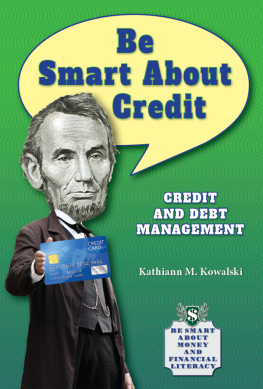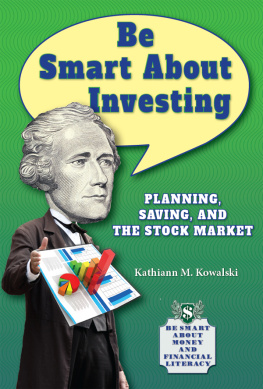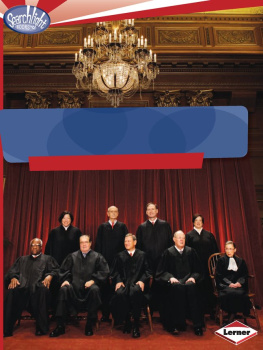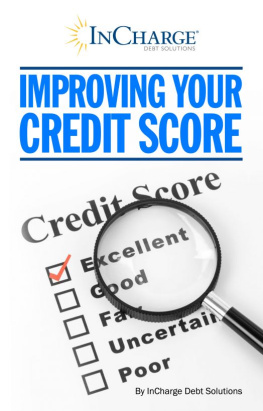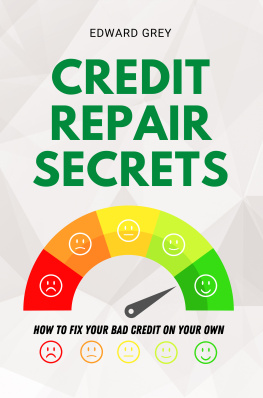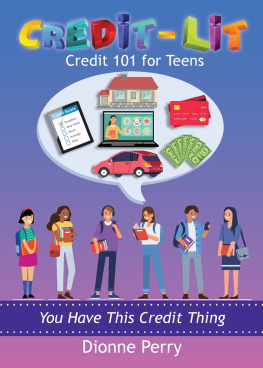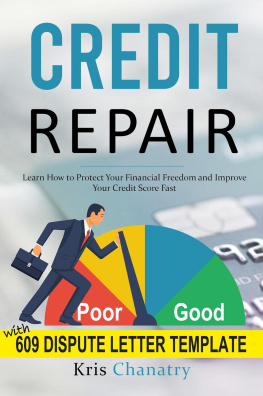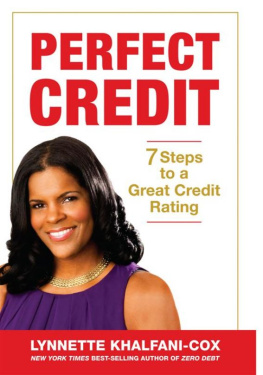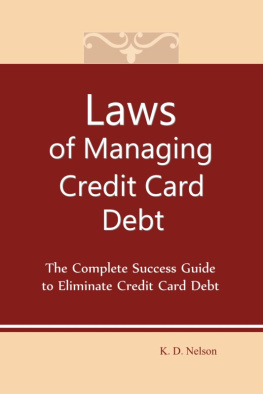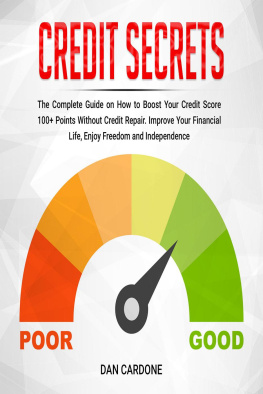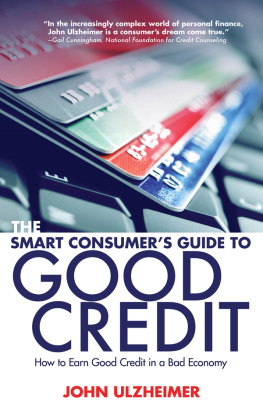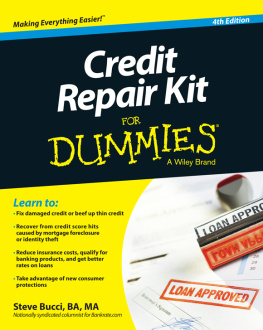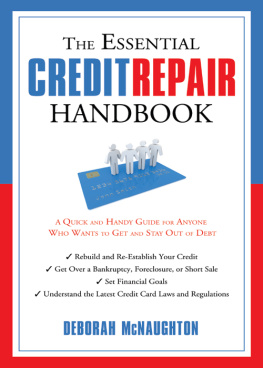Don't Let Credit Max You Out!
Oh, the things you can buy with a small piece of plastic! It may seem like your first credit card is a ticket to buy anything you want. But be careful. Credit can be your best friend or your worst enemy if you don't manage it right. Credit may help you pay for college or buy your first car. It can be a great financial tool, but you must learn to use it wisely. Be Smart About Credit will show you the various forms of credit, the best ways to use credit, and help you manage your debt so you can build toward strong financial future.
About The Author
Kathiann M. Kowalski received her bachelor's degree in political science from Hofstra University and her law degree from Harvard Law School. She has written several titles for Enslow Publishers, Inc.

As a college student, Robyn B. loved using credit cards. They let her go out often with friends. They also let Robyn buy new clothes and travel during school breaks. By the time Robyn graduated, though, she owed almost $7,000.
Eventually, Robyn had to start to repay this money. Otherwise, she would face mounting fees, interest charges, and debt collectors. Now, Robyn had to scrimp and save. She made credit card payments. In addition, she had to pay for rent, food, gasoline, and other expenses. Robyn tells her story in a video on the Texas Guaranteed Student Loan Corporation Adventures in Education public service Web site.
Bad debt problems dont go away overnight. Suppose Robyn paid $300 per month and her interest rate was 18 percent. Paying off $7,000 in credit card debt would take twenty-nine months. If instead she paid only $200 per month, it would take fifty monthsmore than four years!
Three percent of college students carry credit card balances greater than $4,000, reports a 2012 Sallie Mae survey. More than 21 million students attended American colleges and universities that year, so that is more than 630,000 young adults!
The average amount of debt on a college students credit card is $755, says the survey. Only 33 percent pay off outstanding balances every month. The other two-thirds incur interest and other fees.
Credit and debt can either help or hurt your financial life. Much depends on why, where, and how much you use them. Of course, how you follow through with paying matters, too.
A debt is a legal obligation to pay money. Americans two biggest forms of personal debt are home mortgages and student loans. These types of debt help millions of people enjoy home ownership and going to college.
A credit agreement is a contract in which one party agrees to advance money for another. If you get a credit card, the company that issues the card agrees to pay when you present it at a store or for cash advances. In return, you agree to repay those funds, plus any interest or other fees. If you dont pay the bill on time, you owe more fees and interest.
Interest is a charge for the temporary use of money. Usually, interest is a percentage of the principal, which is the amount someone borrows. Fees are other charges for things, such as late payments or ATMs (automated teller machines). Credit card companies make money by charging interest and fees. Often, businesses that honor the card also pay a small percentage to the credit card company. In their view, credit cards boost customer spending.
Used properly, credit can be very convenient. Credit card holders rarely need to carry cash. Credit cards also make payments easier for air travel, hotels, online purchases, and some regular expenses.
Credit cards can ease temporary cash shortages, too. Suppose your car breaks down a week before payday. With a credit card, you can have repairs done right away. You would then pay when the credit card bill arrives.
Credit and debt are not available to everyone. Creditors want to know they can get their money backpreferably at a profit. Thus, companies investigate customers creditworthiness. Creditors review applicants credit history. For secured loans or credit agreements, they also investigate any property someone might surrender for failing to pay. If someone is a bad credit risk, he or she may be unable to get credit or a loan. Or, that person may have to pay higher interest or fees.
Learn about credit and debt now. Youll make smarter financial choices later.
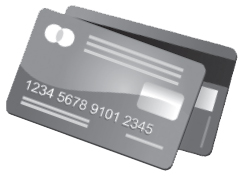
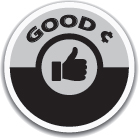
Plan ahead. Save as much as possible for big-ticket items, such as college, a home, or a car. Every dollar saved is a dollar you wont have to borrow and pay interest on later.
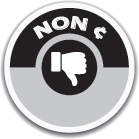
Borrowing isnt a magic well for all your wants and needs. Sources of lending arent always available. You eventually must pay back everything anyway.
Evaluate items you might borrow money for in comparison to other items in your budget. In general, limit debt to necessities that you cant otherwise buy with cash or savings.
Now its your turn to Do the Math. The end of each chapter features a math or word problem. Use what you learned in the chapter to help you answer the questions. The right math will help you make the right financial decisions.
Here are one years costs for the state university you want to attend:
| Expense | Amount |
| Tuition (resident) | $13,067 |
| Dorm & Meal Plan | $10,596 |
| University Health Fee | $862 |
| Other Fees | $480 |
| Books** | $1,438 |
| Personal Expenses** | $4,130 |
| Transportation** | $420 |
| Total** | $30,993 |
| **=estimate |
After talking with your parents, you estimate the following resources will be available:
| Source of Funds | Amount |
| Savings | $8,500 |
| Parents' Contribution | $11,900 |
| Scholarship Award | $2,500 |
| Summer Job | $2,250 |
- If all expenses and resources are as shown, how much money would you still need?
- Suppose you borrow that amount for each of the first three years of college, plus 112 percent of that amount for a fourth year. Not counting interest and fees, what would you owe?
While forms of credit and debt vary, some basic concepts apply to them all. The principal is the amount someone borrows. If you borrow $10,000 for college, the principal of the loan is $10,000.
Interest is the cost for using someone elses money. Credit card interest and other fees make up the cards finance charge. Suppose you charged a $500 plane ticket on your credit card with an 18 percent annual interest rate. If you only paid $200 when the bill came, you would owe interest on the remaining $300. Youd probably owe interest on new charges, too. Contract terms might also let lenders and creditors collect late fees or other charges.
The term is how long you have to pay back a loan. Generally, the shorter a loans term is, the larger payments will be. The longer a loans term is, however, the more interest youll probably pay.

